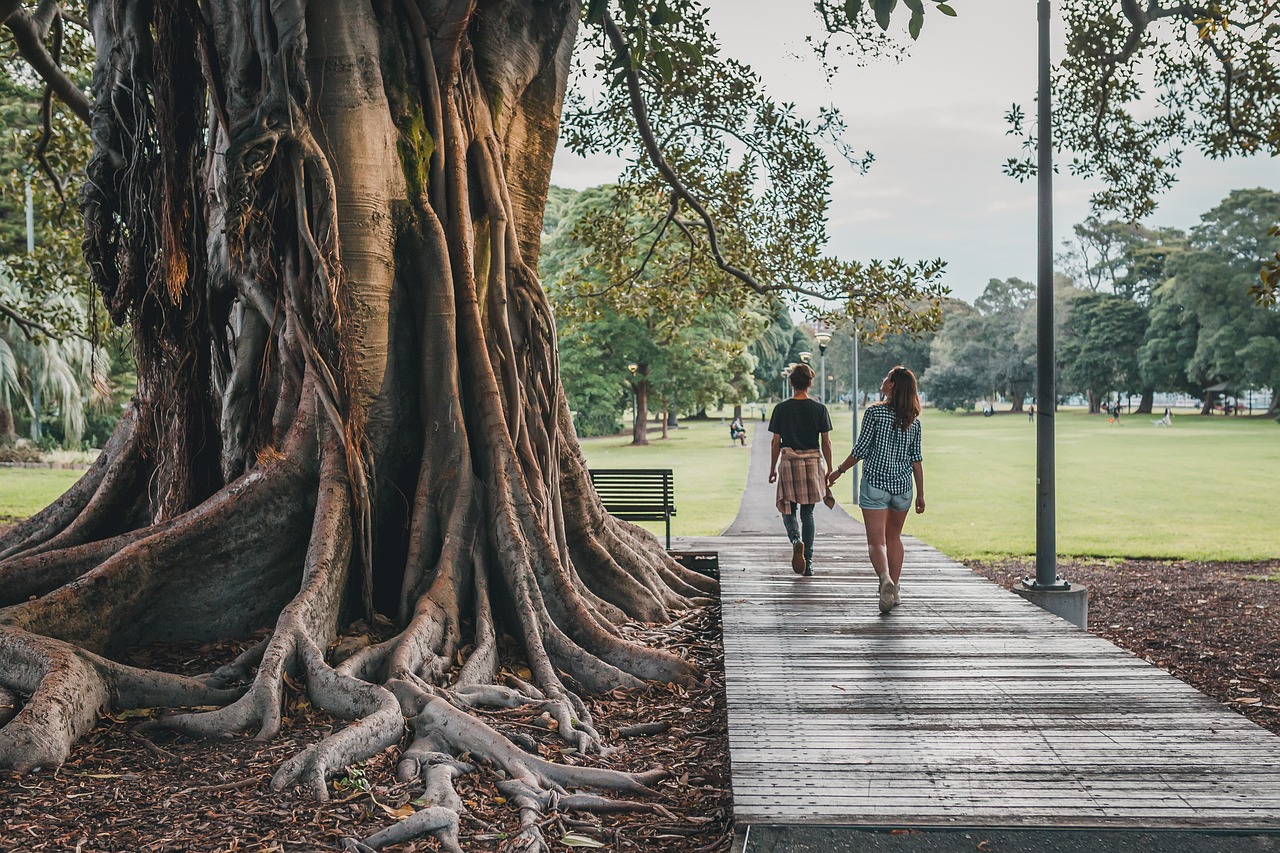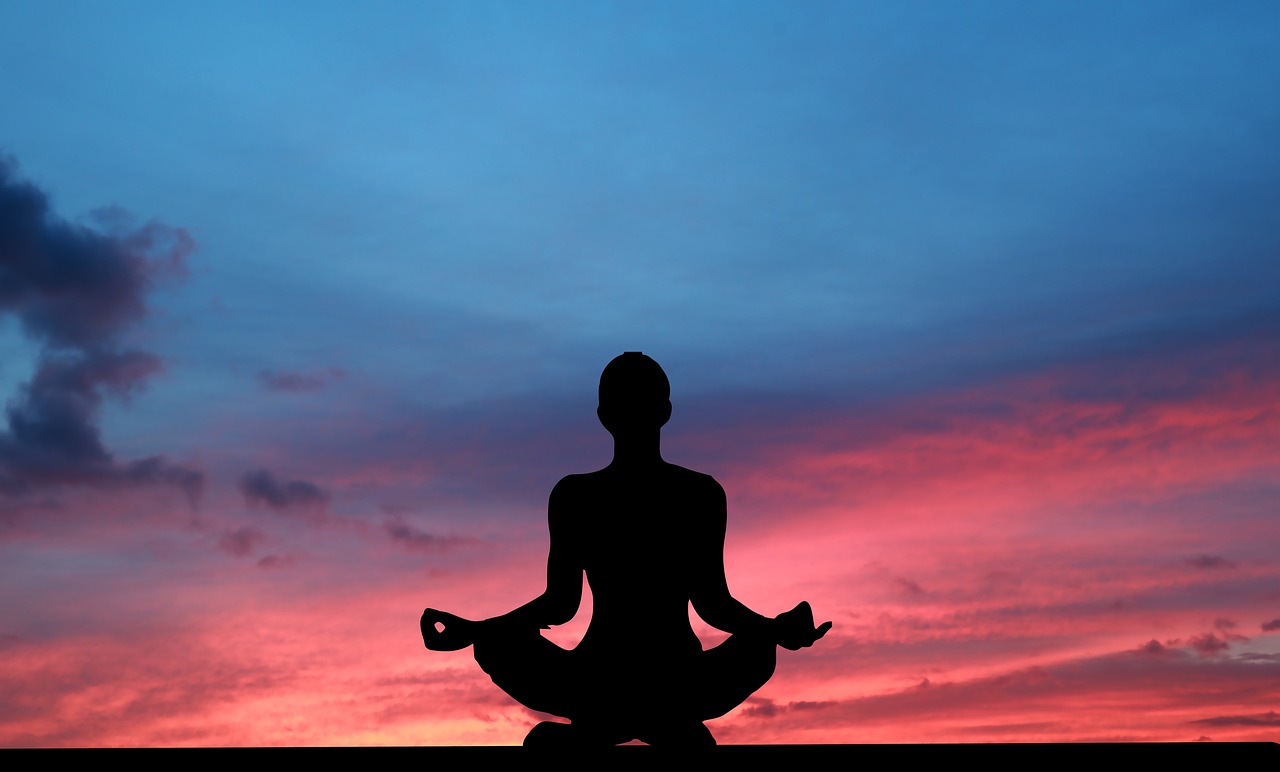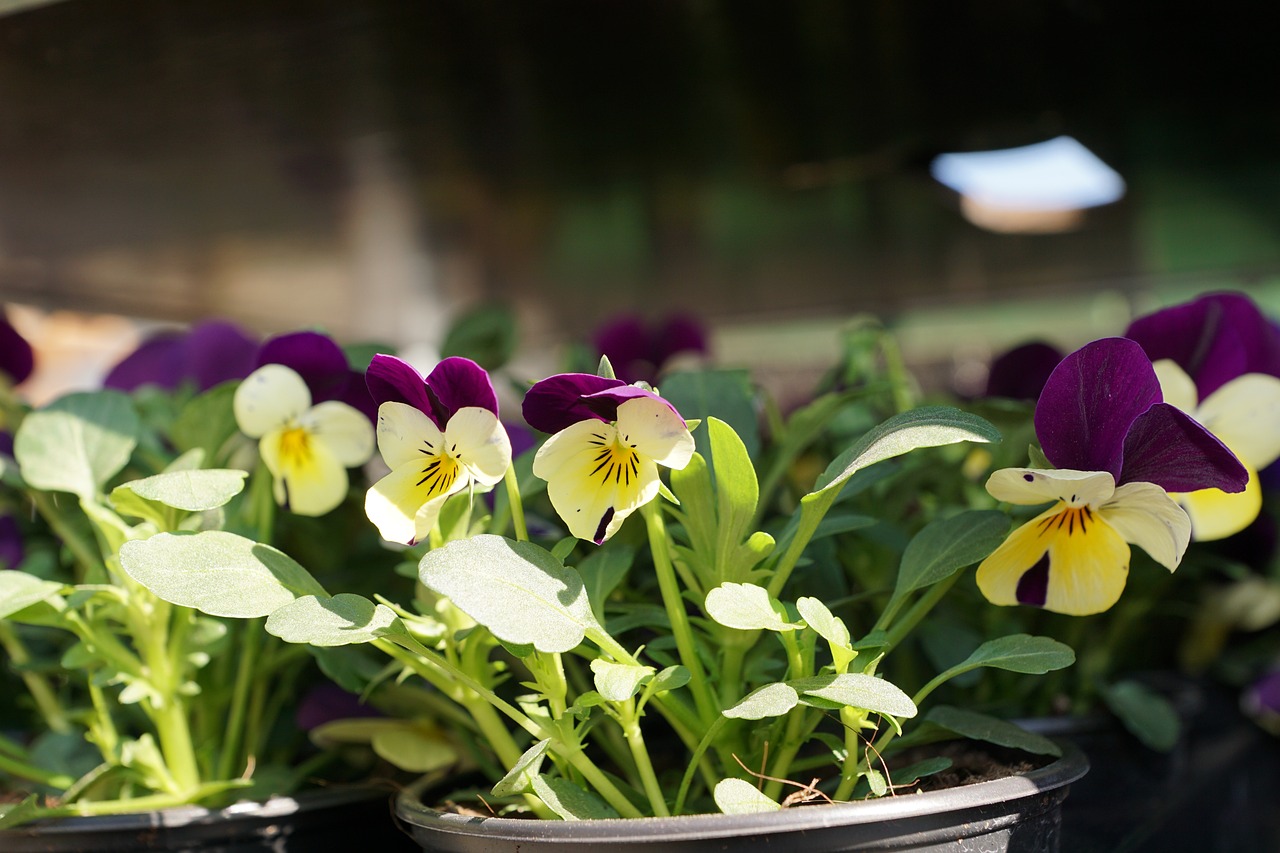How to Make Time for Self-Reflection
Self-reflection is like a mirror that allows you to see beyond the surface and delve deep into your inner self. In a fast-paced world filled with constant noise and distractions, finding time for introspection is essential for personal growth and self-awareness. It's a journey of self-discovery and understanding that requires dedication and commitment. So, how can you make time for self-reflection amidst the chaos of daily life?
Setting priorities and boundaries is the first step towards carving out time for self-reflection. By clearly defining what matters most to you and establishing boundaries to protect that time, you can create a space for introspection free from external disruptions. Learning to say no to distractions and commitments that do not align with your self-reflection goals is crucial in this process.
Creating a routine dedicated to self-reflection can help make introspection a consistent part of your daily or weekly life. Just like any other habit, regular practice is key to reaping the benefits of self-reflection. Find a quiet time and place where you can be alone with your thoughts, away from the hustle and bustle of everyday life.
Technology can be a double-edged sword when it comes to self-reflection. While it can offer tools and resources to aid your introspective journey, it can also be a source of distractions. Mindfully utilize technology by incorporating mindfulness apps, journaling platforms, or guided reflection tools into your routine. However, remember to set limits on screen time to prevent technology from becoming a barrier to self-awareness.
Engaging in mindful activities such as meditation, yoga, or spending time in nature can help quiet the mind and create space for self-reflection. These practices allow you to connect with your inner self and gain clarity amidst the chaos of daily life. Incorporating mindful activities into your routine can enhance your introspective journey.
Journaling is a powerful tool for self-reflection. By documenting your thoughts, emotions, and experiences, you can gain valuable insights into your inner world. Regularly writing in a journal can help you track your progress, identify patterns in your behavior, and explore your innermost thoughts in a structured way.
Finding moments of solitude in your day is essential for deep introspection and self-discovery. Solitude provides a peaceful environment where you can reflect on your thoughts and feelings without external distractions. It's a time to reconnect with yourself, listen to your inner voice, and gain a deeper understanding of who you are.
Reflecting on your daily experiences is a simple yet powerful practice that can enhance your self-awareness. Taking time at the end of each day to review your interactions, emotions, and experiences allows you to learn from past events and make positive changes in your life. Reflective practices help you grow and evolve as a person.
Practicing gratitude is a transformative way to enhance your self-reflection journey. By cultivating a habit of expressing gratitude for the people, experiences, and opportunities in your life, you can shift your perspective and foster self-awareness. Gratitude opens your heart to the beauty of life and helps you appreciate the journey of self-discovery.

Set Priorities and Boundaries
Setting priorities and boundaries is essential in creating space for self-reflection amidst the chaos of daily life. Imagine your time and energy as a limited resource that you must allocate wisely. By establishing clear priorities, you are actively choosing what matters most to you and where you want to invest your attention.
Boundaries act as protective barriers that shield your time and mental space from external demands and distractions. Just like a fence around a garden keeps out unwanted intruders, setting boundaries helps you guard your moments of introspection from being invaded by unnecessary noise.
Learning to say no is a powerful skill in this process. It allows you to decline commitments that do not align with your priorities, giving you the freedom to focus on what truly matters. Saying no is not about being selfish; it's about respecting your own needs and honoring your journey of self-discovery.
When you prioritize self-reflection and set boundaries around it, you are making a conscious choice to invest in your personal growth and well-being. It's about carving out a sacred space within your busy schedule where you can pause, breathe, and listen to the whispers of your inner self.

Create a Routine
Creating a routine dedicated to self-reflection is a powerful way to ensure that you consistently make time for introspection. Just like how a gardener tends to their plants regularly, nurturing your inner world through a routine can lead to profound personal growth.
Imagine your routine as a well-crafted symphony, with each note representing a different aspect of self-reflection. By setting aside specific times in your day or week for introspection, you are essentially composing a melody of self-awareness and mindfulness.
Consider creating a visual schedule or table to map out when you will engage in self-reflection activities. This can help you stay organized and committed to your routine, much like how a roadmap guides a traveler on their journey.
Remember, a routine is not meant to be rigid or restrictive. Allow flexibility within your schedule to adapt to unexpected events or shifts in your mood. Think of your routine as a gentle river that flows steadily, adjusting its course when necessary but always moving forward.

Utilize Technology Mindfully
Technology has become an integral part of our daily lives, offering various tools to support our self-reflection journey. When used mindfully, technology can enhance our introspection practices and promote self-awareness. It's essential to strike a balance between leveraging technology for self-reflection and avoiding its potential distractions.
One way to utilize technology mindfully is by exploring mindfulness apps designed to guide you through meditation, breathing exercises, or reflective practices. These apps can serve as valuable companions in your self-reflection routine, offering structured sessions to help you delve deeper into your thoughts and emotions.
Additionally, journaling apps provide a convenient platform to record your reflections, insights, and gratitude moments. The digital format allows easy access to your entries, enabling you to track your progress in self-awareness and personal growth over time.
However, it's crucial to be aware of the potential pitfalls of excessive screen time. Setting boundaries and limits on your technology usage is paramount to prevent distractions and maintain focus during your self-reflection sessions. Consider establishing tech-free zones or specific times of the day dedicated solely to introspection without digital interference.

Engage in Mindful Activities
Engaging in mindful activities is a powerful way to foster self-reflection and introspection. It involves immersing yourself in activities that promote presence and awareness, allowing you to connect with your inner self on a deeper level. Mindful activities such as meditation, yoga, and nature walks offer a break from the hustle and bustle of daily life, creating space for reflection and self-discovery.
When you engage in mindful activities, you are giving yourself the gift of being fully present in the moment. Whether it's focusing on your breath during meditation, flowing through yoga poses, or simply observing the beauty of nature, these activities can help quiet the mind and bring clarity to your thoughts and emotions.
Imagine meditation as a calming wave washing over you, clearing away the clutter in your mind and leaving behind a sense of peace and clarity. Picture yoga as a dance between your body and breath, guiding you to move with intention and awareness. Envision nature walks as a journey of exploration, where each step brings you closer to your inner self.
By incorporating mindful activities into your routine, you create a sacred space for self-reflection and introspection. These activities serve as anchors that ground you in the present moment, allowing you to let go of worries about the past or future and simply be. Embrace the power of mindful activities to nurture your mind, body, and soul, and watch as self-awareness blooms within you.

Journal Regularly
Journaling regularly is a powerful practice that can enhance your self-reflection journey. By putting pen to paper or fingers to keyboard, you create a space to explore your thoughts, emotions, and experiences in depth. A journal serves as a mirror to your inner world, allowing you to gain insights, track patterns, and unleash creativity.
When journaling, there are no rules or restrictions - it's a personal and intimate process. You can write freely about your day, your dreams, your fears, or your aspirations. Some find it helpful to structure their journal entries by focusing on specific prompts or questions, while others prefer a stream-of-consciousness approach. The key is to find a style that resonates with you and makes the practice enjoyable.
Moreover, journaling doesn't have to be a time-consuming task. Even a few minutes of writing each day can have a significant impact on your self-awareness and mental well-being. Whether you choose to journal in the morning to set intentions for the day ahead or in the evening to reflect on your experiences, the consistency of the practice is what matters most.
Consider creating a dedicated journaling space that inspires you, whether it's a cozy corner in your home, a quiet park bench, or a bustling coffee shop. Surround yourself with items that spark creativity and comfort, such as candles, plants, or soothing music. This environment can help you get into the right mindset for introspection and self-expression.

Seek Solitude
Seeking solitude is essential for deep introspection and self-discovery. In the midst of our busy lives, finding moments of solitude allows us to reflect on our thoughts and emotions without external distractions. It provides a tranquil space where we can delve into our inner world and gain valuable insights into ourselves.
Imagine solitude as a sanctuary for your mind, a place where you can escape the noise of the world and listen to the whispers of your soul. It's like taking a peaceful stroll in a serene garden, where the only sound you hear is the rustling of leaves and the gentle hum of nature. In these moments of solitude, you can truly connect with your inner self and explore the depths of your being.
Creating intentional solitude can be as simple as taking a quiet walk in nature, sitting in a cozy corner with a cup of tea, or finding a peaceful spot to meditate. It's about carving out pockets of time in your day where you can be alone with your thoughts and feelings, allowing them to flow freely without judgment or interruption.
For some, seeking solitude may seem daunting or uncomfortable at first, especially in a world that often glorifies constant busyness and external stimulation. However, embracing solitude can lead to profound personal growth and self-awareness. It's a gift you give yourself, a sacred space where you can nurture your inner world and foster a deeper connection with your true self.

Reflect on Daily Experiences
Reflecting on your daily experiences is a powerful way to gain insights into your thoughts, emotions, and actions. It allows you to pause and examine the events of the day, understand how they have impacted you, and identify areas for growth. By setting aside time for reflection, you create space to learn from your experiences and make conscious choices moving forward.
One effective way to reflect on daily experiences is to keep a reflective journal. Take a few minutes each day to write down key events, your reactions, and any lessons learned. This practice not only helps you process your emotions but also enables you to track patterns in your behavior and mindset over time.
Another approach to daily reflection is to engage in a brief mindfulness exercise before bed. Close your eyes, take a few deep breaths, and mentally review the events of the day without judgment. Notice how you felt during different moments and consider what you could have done differently. This practice can help you gain clarity and perspective on your daily experiences.
Additionally, discussing your daily experiences with a trusted friend or mentor can provide valuable insights. Sharing your thoughts and emotions with someone else can offer new perspectives and help you gain a deeper understanding of your own reactions and behaviors.
Remember, the goal of reflecting on daily experiences is not to dwell on the past but to learn from it and grow. By incorporating this practice into your daily routine, you can develop greater self-awareness, improve your decision-making skills, and foster personal growth.

Practice Gratitude
In a busy world, self-reflection is crucial for personal growth. Here are practical tips to carve out time for introspection and cultivate self-awareness amidst daily responsibilities.
Establish clear priorities and boundaries to protect time for self-reflection. Learn to say no to distractions and commitments that hinder your ability to focus on introspection.
Develop a daily or weekly routine dedicated to self-reflection. Consistency is key in making time for introspection. Find a time and place where you can be alone with your thoughts.
Leverage technology to aid your self-reflection practice. Use apps for mindfulness, journaling, or guided reflection. However, be mindful of screen time and set limits to prevent distractions.
Incorporate mindful activities like meditation, yoga, or nature walks into your routine. These practices can help quiet the mind and create space for self-reflection and introspection.
Keep a journal to document your thoughts, emotions, and experiences. Writing can be a powerful tool for self-reflection and gaining insights into your inner world.
Find moments of solitude in your day to reflect on your thoughts and feelings without distractions. Solitude can provide a peaceful environment for deep introspection and self-discovery.
Take time at the end of each day to reflect on your experiences, interactions, and emotions. Reflective practices can help you learn from past events and make positive changes.
Cultivate a habit of gratitude to enhance your self-reflection. Regularly express gratitude for the people, experiences, and opportunities in your life. Gratitude can shift your perspective and foster self-awareness.
Q: How often should I engage in self-reflection?
A: The frequency of self-reflection can vary for each individual. It's beneficial to incorporate it into your routine daily or weekly to ensure consistent personal growth.
Q: Can self-reflection help with stress management?
A: Yes, self-reflection can be a powerful tool in managing stress. By understanding your thoughts and emotions better, you can identify stress triggers and develop coping mechanisms.
Q: What are some quick self-reflection exercises I can do during a busy day?
A: Taking a few minutes to practice deep breathing, jotting down your thoughts in a journal, or simply pausing to check in with your emotions can be effective self-reflection exercises even in a busy schedule.
Frequently Asked Questions
- What is self-reflection and why is it important?
Self-reflection is the process of looking inward to examine one's thoughts, emotions, and behaviors. It is crucial for personal growth and self-awareness as it allows individuals to gain insights into their inner world, understand their values and beliefs, and make positive changes in their lives.
- How can setting priorities and boundaries help in making time for self-reflection?
Setting priorities and boundaries is essential in carving out time for self-reflection as it helps individuals identify what truly matters to them and allocate time and energy accordingly. By learning to say no to distractions and commitments that do not align with their introspective goals, individuals can create space for self-reflection.
- Why is journaling recommended as a tool for self-reflection?
Journaling is a powerful tool for self-reflection because it allows individuals to externalize their thoughts, emotions, and experiences. By putting words on paper, individuals can gain clarity, process their feelings, and track their personal growth over time. Journaling provides a tangible record that can be revisited for deeper insights.
- How can practicing gratitude enhance self-reflection?
Cultivating a habit of gratitude can enhance self-reflection by shifting one's perspective towards positivity and abundance. When individuals express gratitude for the people, experiences, and opportunities in their lives, they become more attuned to the present moment and develop a deeper sense of self-awareness and appreciation for what they have.



















